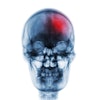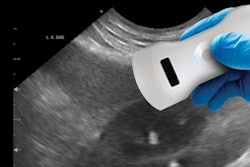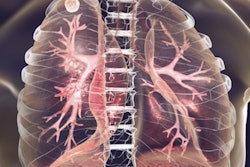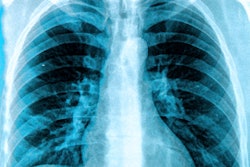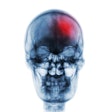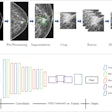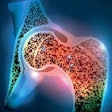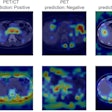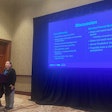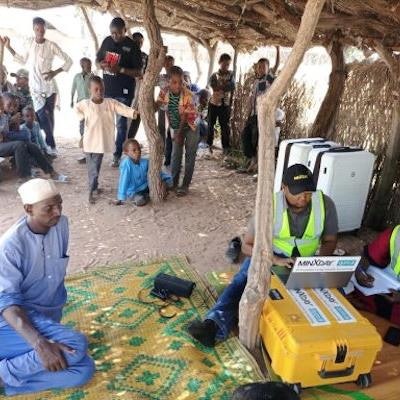
Ultraportable chest x-ray systems equipped with artificial intelligence (AI) software can be used to provide better tuberculosis (TB) screening in hard-to-reach areas, according to findings of a study in Nigeria.
A group led by Dr. Stephen John, founder of the Janna Health Foundation, organized screening camps in the Gombe and Adamawa states of Northeast Nigeria. The team found that the approach helped identify patients who would likely have gone undiagnosed.
"Employing AI to read [chest x-rays] can improve triaging when human readers are unavailable and can save expensive diagnostic testing costs," the researchers wrote. The study is under review in the journal BMC Global and Public Health and was posted March 24 on Research Square.
Nigeria has the highest tuberculosis burden in Africa and the fifth highest burden globally. Despite impressive gains in treatment coverage in the last few years, 56% of people developing tuberculosis in the country in 2021 were still missed, according to the authors.
The use of easily transported ultraportable x-ray devices equipped with AI software for interpreting images could help turn this tide, the researchers propose. For instance, the systems may assist staff in remote areas in deciding whether or not to request additional sputum samples for diagnostic testing using the Xpert MTB/RIF assay, they wrote. This is a new test that detects tuberculosis in less than two hours, compared with two to six weeks using standard cultures, the group explained.
However, few studies have documented the performance of these approaches, the group wrote.
To that end, John and colleagues, including local physicians and members of the global Stop TB Partnership, organized screening camps in remote areas between July and December 2022. Camps were held in schools, primary health facilities, and community gathering points after consultations with local leaders.
All consenting patients 15 years old or older were screened for tuberculosis symptoms (cough, fever, night sweats, and weight loss) and underwent a chest x-ray using a MinXray Impact system equipped with AI (qXR v3, Qure.ai).
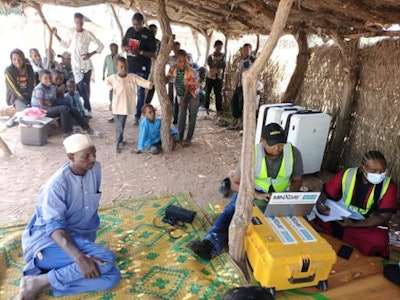 The suitcases used to transport the wireless ultraportable x-ray machines were used as makeshift desks in the communities, the authors noted. Image courtesy of Research Square through CC BY 4.0.
The suitcases used to transport the wireless ultraportable x-ray machines were used as makeshift desks in the communities, the authors noted. Image courtesy of Research Square through CC BY 4.0.During the study period, 66 screening events were held in 60 different communities and 5,298 people ages 15 and above were screened. The qXR algorithm provides a tuberculosis abnormality score ranging from 0.01-0.99. Anyone with an abnormality score of 0.30 or more on qXR and/or reporting one or more symptom was asked to produce a sputum sample for Xpert testing.
Overall, 770 participants (14.5%) had abnormality scores of 0.3 or higher and 447 (8.4%) had a score of 0.5 or higher.
The authors reported they were able to collect 1,022 sputum samples for Xpert testing. While overall sputum collection among people with any tuberculosis symptom was low (907 of 3,084), sputum was collected from 96% (739 of 770) of people with AI scores 0.3 and above and 96% (624 of 648) of people with AI scores of 0.3 and above and reporting any tuberculosis symptom. Xpert testing detected 85 people (8% of those tested) with tuberculosis who were then linked to care, the group wrote.
Ultimately, given that it is not feasible to have access to radiologists in these remote areas (other than in such studies), future work may include remote reading to identify more people with tuberculosis and to link them to care, the authors added.
"Employing AI to read [chest x-rays] can improve triaging when human readers are not available and was simple to implement by health workers with basic training," the researchers concluded.



